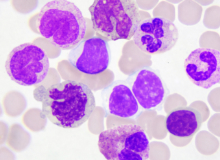 After a two-year process calling on New York State lawmakers to update patient protections surrounding biologic treatments, U.S. Pain Foundation is pleased to announce that Gov. Andrew Cuomo signed a biologic substitution bill, Chapter 357 of the Laws of 2017.
After a two-year process calling on New York State lawmakers to update patient protections surrounding biologic treatments, U.S. Pain Foundation is pleased to announce that Gov. Andrew Cuomo signed a biologic substitution bill, Chapter 357 of the Laws of 2017.
Earlier in the state’s legislative session, U.S. Pain reached out to senators and the Assembly, urging them to support Senate Bill 4788 and its companion bill. The legislation secured effective medication substitution laws while also allowing patients to access this new age of medicines in a safe, reliable, and consistent manner.
“Patients deserve the option to access potentially less expensive medicinal options, while also having protections in place to ensure their doctor is made aware of any changes made to their treatment plan,” says director of State Advocacy and Alliance Development, Shaina Smith. “Gov. Cuomo’s signing of this bill increases patient access to promising innovative medications which manage a variety of conditions.”
Under the legislation, substitution will occur only when the Food and Drug Administration has designated a biologic product as interchangeable. The measure also ensures full transparency, requiring pharmacy-physician communication of the product dispensed. The pharmacy has five business days to communicate to the prescriber, making him or her aware of any substitution that has been made and specifying the product provided to the individual.
“We applaud Gov. Cuomo, patient advocates, and nonprofit organizations who realized this unmet need i when it comes to enhancing patient protections,” Smith adds. “As an organization that champions for patient access and safety, we realize interchangeability must be approached with thoughtful care. This signed bill tackles this challenge through the necessitating of communication between pharmacist and physician—a safeguard that promotes quality treatments to New Yorkers living with chronic conditions.”
To read U.S. Pain’s position statement on biologics and biosimilars, click here.
About biologics
Biologics are medications produced from living cells that have proved remarkable in treating painful conditions like rheumatoid arthritis, ulcerative colitis, psoriasis, and even some cancers. Biosimilars are similar, usually less expensive versions of the biologics used to treat many of the same conditions. The difference is that because of the complexity of making this type of medication, biosimilars are not exactly the same as biologics (e.g. they are not like a generic of a normal drug). There are minor differences between them, but those differences can impact the treatment and safety of the patient.
